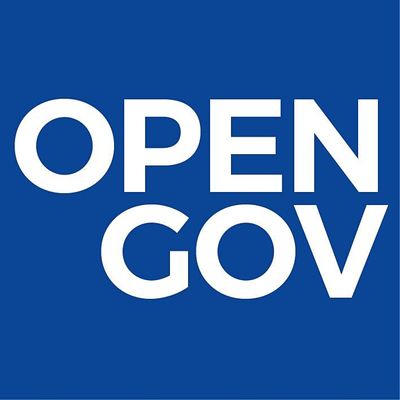
About this Event
Revolutionising Government Operations in the Age of AI
AI is integral to Singapore's digital transformation, enhancing public service delivery through advanced data analytics and automation. Modern technologies such as Retrieval-Augmented Generation (RAG) can revolutionise governance, not only transforming the capabilities of AI systems but also setting the stage for more advanced applications.
However, a survey by Pure Storage revealed that 83% of organisations require substantial IT infrastructure upgrades to leverage AI fully, indicating that many are not yet AI-ready and need significant reconfiguration.
In the public sector, agencies are grappling with outdated legacy systems that lack automation, while the demand for processing power and storage continues to rise. Moreover, the government faces significant challenges in information security, privacy, and data resiliency.
Generative AI: The Next Frontier
GenAI extends far beyond merely generating new content like text, images, audio, and video, encompassing advanced capabilities in data synthesis, pattern recognition, and creative problem-solving.
Generative Adversarial Networks (GANs), Variational Autoencoders (VAEs), and transformer models like GPT (Generative Pre-trained Transformer) are some of the most prominent examples of GenAI.
By integrating GenAI into government, Singapore can enhance its competitive edge in smart governance, predictive analytics for policy formulation, and personalised citizen services.
Driving Innovation with RAG
Retrieval Augmented Generation (RAG) is a significant innovation that bridges the gap between generative skills and external knowledge, resulting in more robust and context-aware language understanding and generation systems.
A key technique of RAG is in natural language processing, it improves contextual awareness, ensures fluent content, eliminates bias, and manages vast knowledge libraries, making it essential for long-term content development.
In Singapore's public sector, where efficiency and precision are critical, RAG allows agencies to streamline operations and provide more responsive services to the public. RAG improves decision-making by enabling rapid and precise data processing, resulting in better insights from massive datasets.
Building Robust Data and AI Infrastructure
The backbone of effective AI implementation is a robust data and AI infrastructure. According to Pure Storage, high investment costs and a shortage of in-house skills are cited by 73% of organisations as the primary barriers to deploying AI. Another significant challenge, faced by 43%, is the delay in acquiring necessary hardware, especially GPUs.
Key components of infrastructure include high-speed connectivity, secure cloud services, and advanced data analytics capabilities. By ensuring that data is accessible and reliable, Singapore’s public sector can develop platforms that support large-scale data collection, storage, and processing and fully exploit the potential of RAG and GenAI.
Ensuring Cyber Resilience in the Age of GenAI
As Singapore advances its AI capabilities, ensuring robust cyber resilience becomes imperative. Government AI initiatives are increasingly vulnerable to cyber threats, ranging from data breaches to sophisticated cyberattacks.
AI initiatives aim to enhance cyber resilience by implementing proactive strategies to mitigate risks and protect sensitive data. AI-driven cybersecurity solutions, analyse vast data, detect anomalies, and respond swiftly to potential breaches, thereby enhancing security posture and fostering confidence in data privacy and integrity among citizens.
Outlook: Integrating RAG and Cyber Resilience
Looking ahead, the integration of RAG and cyber resilience will continue to shape Singapore's public sector landscape. RAG not only saves costs by optimising infrastructure utilisation but also enhances the utility and effectiveness of AI applications through improved access to diverse, relevant data sources. By fostering a collaborative ecosystem of AI experts, and cybersecurity specialists, Singapore can navigate the complexities of digital transformation while safeguarding its national interests and citizen trust.
The Importance of Infrastructure for RAG, GenAI, and Cyber Resilience
A strong infrastructure ensures that AI systems have the necessary computational resources and data to function optimally. This infrastructure not only supports the operational needs of RAG and GenAI but also fosters an environment where AI technologies can flourish and contribute to the public good. It also provides the security measures needed to safeguard against cyber-attacks, thereby maintaining the trust and confidence of the public in the digital government.
OpenGov Asia extends a special invitation to an exclusive OpenGov Events, which will demonstrate how Retrieval-Augmented Generation and GenAI enhance decision-making processes and operational efficiencies across government agencies. It will highlight strategies for bolstering cyber resilience within governmental AI frameworks, which are essential for safeguarding sensitive data amidst evolving cyber threats.
Participants will:
· DISCOVER cutting-edge strategies for enhancing AI excellence and building cyber resilience
· ENHANCE understanding of how RAG improves accuracy and speed in governmental operations
· EXPLORE innovative solutions to bolster cyber resilience and safeguard sensitive governmental AI initiatives from evolving threats
· PREPARE strategies to ensure readiness for future AI advancements and cybersecurity challenges in government
· FOSTER collaborations with experts in AI and cybersecurity to tackle challenges specific to the public sector
Who should attend:
· Chief Information Officers
· Chief Technology Officers
· Chief Data Officers
· Chief Transformation Officers
· Chief Information Security Officers
· Directors and Heads of Data
· Heads of Data Science
· Directors and Heads of IT Infrastructure
· Directors and Heads of Cloud Architecture
Event Venue & Nearby Stays
Grand Hyatt Singapore, 10 Scotts Rd, Singapore 228211, Singapore, Singapore
USD 1033.61
